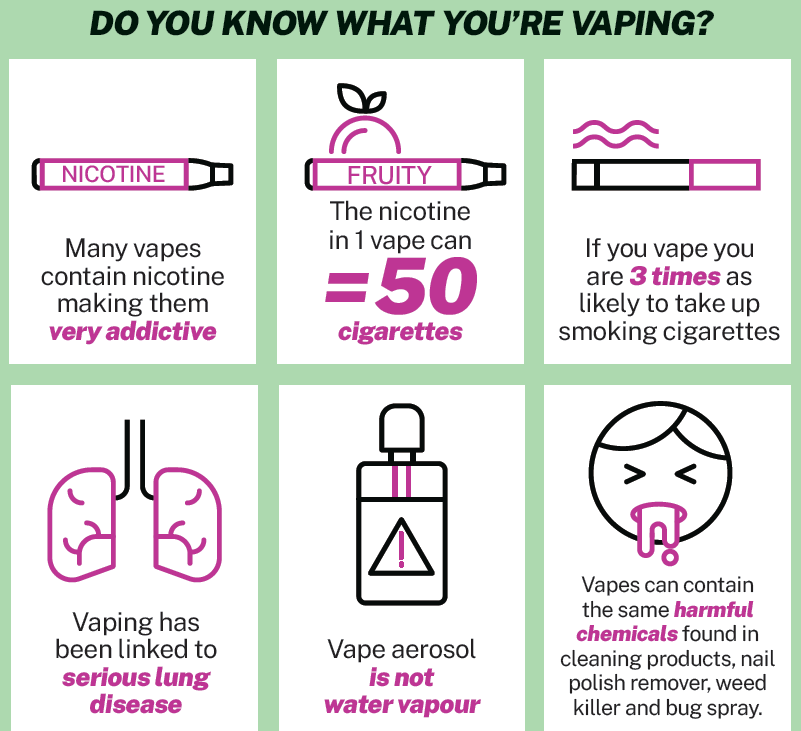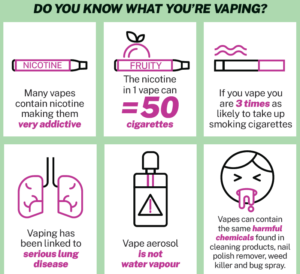$250 In Cairns & $200 online includes reinforcement recording.
Liberating Yourself from Vaping Addiction: The Transformative Power of Hypnotherapy. Vaping, once touted as a safer alternative to smoking, has become a widespread addiction, particularly among young adults. Despite its initial appeal as a cessation aid, vaping often perpetuates nicotine dependency and poses serious health risks. If you find yourself trapped in the cycle of vaping addiction and longing to break free, hypnotherapy offers a promising path to liberation. In this comprehensive guide, we’ll explore how hypnosis can empower you to quit vaping for good. Understanding Vaping Addiction: Vaping addiction is multifaceted, involving both physical dependence on nicotine and psychological factors. Nicotine, a highly addictive substance, alters brain chemistry, leading to cravings and withdrawal symptoms when deprived. However, the psychological aspects of addiction, such as habits, triggers, and emotional associations, play a significant role in sustaining vaping behaviour.
Addressing the Psychological Roots: Unlike other smoking cessation methods focused solely on nicotine replacement or behavioural modification, hypnotherapy targets the underlying psychological drivers of vaping addiction. Through hypnosis, you can delve into the subconscious mind to uncover and reprogram the subconscious associations and beliefs that fuel your vaping habit.
- Identifying Triggers: Hypnotherapy enables you to identify the specific triggers and situations that prompt you to reach for your vape. Whether it’s stress, boredom, social pressure, or emotional distress, hypnosis helps you recognize these triggers and develop alternative coping mechanisms.
- Reframing Associations: Vaping often becomes intertwined with certain activities or emotions, such as socializing, relaxation, or stress relief. Hypnotherapy can help you untangle these associations by reframing vaping as a negative behaviour and instilling new, healthier associations with activities like deep breathing, exercise, or mindfulness.
- Changing Behaviours: Through hypnotic suggestion, you can cultivate new behavioural responses to replace vaping. This might include visualizing yourself engaging in alternative activities, practicing relaxation techniques, or reinforcing your commitment to a vape-free lifestyle.
- Boosting Motivation: Hypnotherapy enhances your motivation and confidence in quitting vaping by tapping into your subconscious desires for health, freedom, and self-improvement. By amplifying your intrinsic motivation, hypnosis strengthens your resolve to overcome cravings and resist temptation.
The Role of Relaxation and Stress
Reduction of stress is a common trigger for vaping and can undermine your efforts to quit. Hypnotherapy incorporates relaxation techniques to reduce stress levels and promote emotional resilience, making it easier to withstand cravings and navigate withdrawal symptoms.
- Deep Relaxation: During hypnosis sessions, you’ll experience deep relaxation, which calms the mind and body, lowers cortisol levels, and induces a state of tranquillity. This relaxation response counteracts the physiological arousal associated with cravings, helping you regain control over your impulses.
- Stress Management: Hypnotherapy equips you with effective stress management tools, such as visualization, progressive muscle relaxation, and self-hypnosis techniques. By practicing these methods regularly, you can diminish the impact of stress on your well-being and diminish the allure of vaping as a coping mechanism.
Addressing Underlying Emotional Issues:
Vaping addiction often coexists with underlying emotional issues, such as anxiety, depression, or trauma. Hypnotherapy provides a safe and supportive space to explore and heal these emotional wounds, reducing the need to self-medicate with nicotine.
- Trauma Resolution: If past trauma or adverse experiences contribute to your vaping addiction, hypnotherapy can facilitate healing and resolution. By revisiting these experiences in a controlled therapeutic setting, you can release trapped emotions, reframe negative beliefs, and reclaim your sense of empowerment.
- Anxiety and Depression: Hypnotherapy offers effective tools for managing anxiety and depression, which are common co-occurring conditions with vaping addiction. Through relaxation techniques, cognitive restructuring, and positive suggestion, hypnosis alleviates symptoms, enhances mood, and reduces reliance on vaping as a crutch.
Harnessing the Power of Positive Suggestion:
Positive suggestion lies at the heart of hypnotherapy, shaping your subconscious mind to align with your conscious goals and desires. By harnessing the power of suggestion, hypnosis can reinforce your commitment to quitting vaping and instill confidence in your ability to succeed.
- Creating Mental Scripts: Your hypnotherapist will craft personalized scripts tailored to your specific goals and challenges. These scripts contain positive affirmations, visualizations, and behavioral cues designed to overwrite negative patterns and strengthen your resolve to quit vaping.
- Visualizing Success: Through guided imagery, hypnosis helps you visualize yourself as a non-vaper, enjoying a healthier, more vibrant lifestyle. By vividly imagining the benefits of quitting, such as improved health, vitality, and freedom, you create a compelling vision that motivates and sustains your efforts.
- Enhancing Self-Efficacy: Hypnotherapy enhances your self-efficacy—the belief in your ability to achieve your goals—by fostering a sense of mastery and control over your behavior. As you experience success in resisting cravings and adhering to your quit plan, your confidence grows, reinforcing your commitment to staying vape-free.
Overcoming Resistance and Relapse:
Quitting vaping is rarely a linear process, and setbacks are a natural part of the journey. Hypnotherapy equips you with resilience and coping strategies to overcome resistance and navigate relapse without derailing your progress.
- Managing Cravings: Hypnotherapy provides you with tools to manage cravings when they arise. By employing relaxation techniques, distraction methods, and cognitive reframing, you can diminish the intensity and duration of cravings, making them easier to resist.
- Learning from Relapse: If you experience a relapse, hypnotherapy helps you understand the triggers and underlying reasons for the setback without self-judgment. By reframing relapse as a learning opportunity rather than a failure, you can identify strategies to prevent future lapses and strengthen your resolve to persevere.
- Reinforcing Commitment: Through reinforcement sessions, hypnotherapy reaffirms your commitment to quitting vaping and provides ongoing support and encouragement. These sessions serve as checkpoints to assess your progress, address any challenges or setbacks, and adjust your treatment plan as needed.
Conclusion:
Quitting vaping is a challenging but achievable goal with the right support and resources. Hypnotherapy offers a holistic approach to vaping cessation, addressing the psychological, emotional, and behavioral aspects of addiction. By harnessing the power of the subconscious mind, hypnosis empowers you to break free from vaping addiction, reclaim your health and vitality, and embark on a journey towards a vape-free future filled with vitality, freedom, and well-being


